The art of writing free
Sarah Baker reflects on unleashing the unconscious
Nearly every writing book on my shelf suggests the same somewhat mysterious daily practice. It has many names: “morning pages” in Julia Cameron’s The Artist’s Way; “first thoughts” in Natalie Goldberg’s Writing Down the Bones; and “early morning writing” in Becoming a Writer, by Dorothea Brande. Peter Elbow, author of Writing Without Teachers, prefers the somewhat ungainly but increasingly popular “freewriting.”
According to these gurus, beginning writers as well as seasoned ones freewrite for many reasons. Sometimes, as Cameron writes, it empties your mind of the garbage that would needle at you anyway. I find it a useful channel for my ever-churning, over-active brain. It’s efficient therapy—cheap and fast.
Of course, as Peter Elbow reminds me in Writing Without Teachers, “Freewriting isn’t just therapeutic garbage. It’s also a way to produce bits of writing that are genuinely better than usual: less random.” It might not happen always, or even frequently, but better bits will happen eventually. I sift through a lot of garbage and sometimes get lucky and discover a buried gem or two. Often it is in a digression or an unlikely place. It could be a new way to think about something—an opening, a shining light.
Often writers freewrite to get their creative juices flowing. “It is the bottom line, the most primitive, essential beginning of writing,” suggests Goldberg. And, it can eliminate the need to toss those first few paragraphs, and a bit of the ego, when you finally do sit down at the computer.
If you’re aching from transitionitis or seized up with writer’s block, a freewrite, like a deep-tissue massage, might limber you up. Brande recommends, “…whenever you are in danger of the spiritual drought that comes to the most facile writer from time to time, put the pencil and paper back on your bedside table, and wake to write in the morning.” In freewriting, thoughts often get worked out, unleashed. And, more often than not, the muse will appear. In my freewriting, I sometimes find that a choice, uncensored bit of honesty percolates up. It’s a time for my inner editor, that ever-present critic—who can be found staring over my shoulder whispering, “boring” or “Come on Sarah, can’t you find a better verb?”—to go on sabbatical.
Freewriting admits no judgment, no criticism, only freedom. Cameron says these lines “are not meant to be art, or even writing. Nothing is too petty, too silly, too stupid, or too weird, to write down.” No one will see this. And if they do, the writing will probably be illegible. Mine looks like my doctor’s signature on a prescription. I can barely decipher the words when I reread them. If you tend to write your deepest, darkest secrets when you freewrite, and write legibly, and are prone to leaving things around, then do yourself a favor. Lock the freewriting up. Or, shred it. Unless, secretly you want it to be discovered.
The writer Martha McPhee is a friend, and she once recommended when I was searching for a subject, “Write what’s raw.” There’s no better place for rawness then a freewrite. Find the words that hold the most power and write about them. You might just stumble onto your next topic.
Many writers recommend freewriting first thing—pre-caffeine, pre-good breath, pre-newspaper, pre-chats with humans. Brande suggests writing when you are in this dream-like state. I often leave my notebook, pen, and timer next to my bed for just such mornings, but my 7-year-old seems to set his internal clock just ahead of mine, arriving bedside moments before my alarm beeps. Until he becomes a teenager and sleeps till noon, my early morning freewrite is fantasy. Until then, I write freely when I can.
And so should you. It works.
So How Do You Do It?
Freewriting is a powerful technique for both beginning and seasoned writers. It can help quiet your mind, warm you up, let loose uncensored thoughts, and even banish writer’s block. Every writer discovers what works best for his or her needs, but here are some general guidelines:
- Write longhand with a pen or pencil in a notebook. No typing.
- Write for 10 minutes (initially.) Set a timer. Some people like to write first thing, when they are still in a dreamlike state, to capture unconscious thoughts.
- Keep your hand moving the whole time, and I mean writing, not scratching your nose.
- Don’t edit or cross out. Don’t worry about punctuation, spelling, grammar, or handwriting. Don’t ever look back and never judge.
- If you get stuck write, “I’m stuck.” Or, in my case, “My lower back aches,” or “My shoulders hurt.” Sometimes I just write, “dumb, dumb, dumb” because that’s the way I’m feeling. Once, “platitudes, platitudes, platitudes” emerged when I sensed I was holding back from the truth.
- Don’t think. Don’t get rational. Go for the raw.
- Do it every day even if your dog needs walking, a letter needs mailing, or you have an unexpected urge to cook chili.
- Take risks. Go deep. Be free. This is for your eyes only.
Enjoy.
{Formerly a book editor at Viking/Penguin and Simon & Schuster in New York City, Sarah Baker is a freelance writer and editor who lives in Cambridge, Massachusetts, with her husband and two children.}
| |
Share This:





